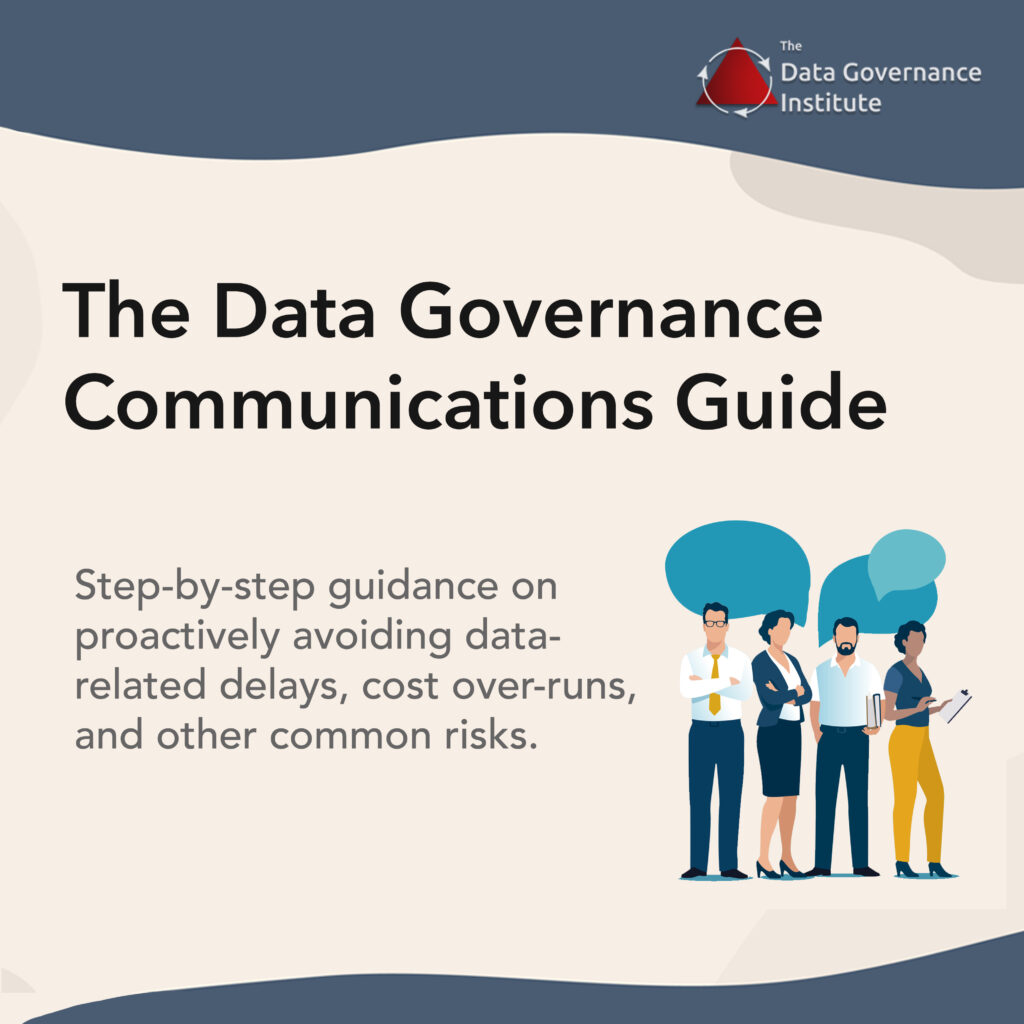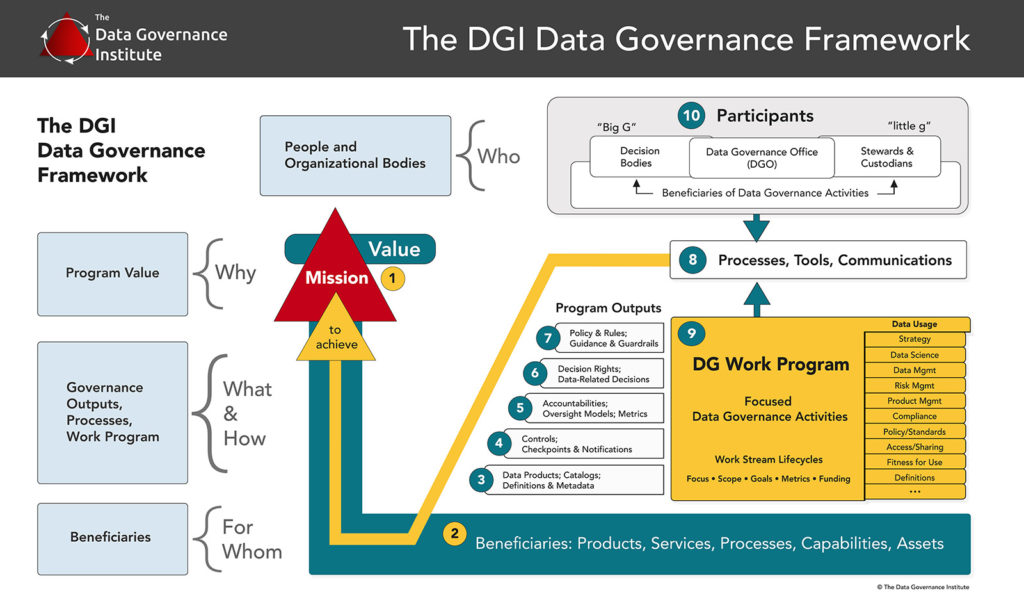A successful Data Governance program does not begin with the design of the program!
- Before you start deciding who goes on what committee, you should be clear about your program’s value statement.
- You should have developed a roadmap to share with stakeholders.

- Those stakeholders will want to know the WHO / WHAT / WHEN / WHERE / WHY / HOW of your program before they decide to support it, so you’ll need to anticipate their questions and have preliminary answers, even if they’re only assumptions until you do your actual program design.
You’ll want to build the type of program that your stakeholders will be excited about. The Data Governance programs we’ve seen that are the most successful are ones with a clear focus, metrics that excite leadership, a value proposition that everyone can get behind, and a clear message.
Don’t worry if this isn’t real obvious to you. After all, we’re all familiar with the concept of not being able to see the forest for the trees. What if you ARE one of the trees?
Consider getting a fresh viewpoint from someone within your organization (or from outside) who can help you describe your vision and set an approach to:
- Develop a value statement
- Prepare a roadmap
- Plan and fund
- Design
- Deploy
- Govern
- Monitor, measure, report



